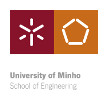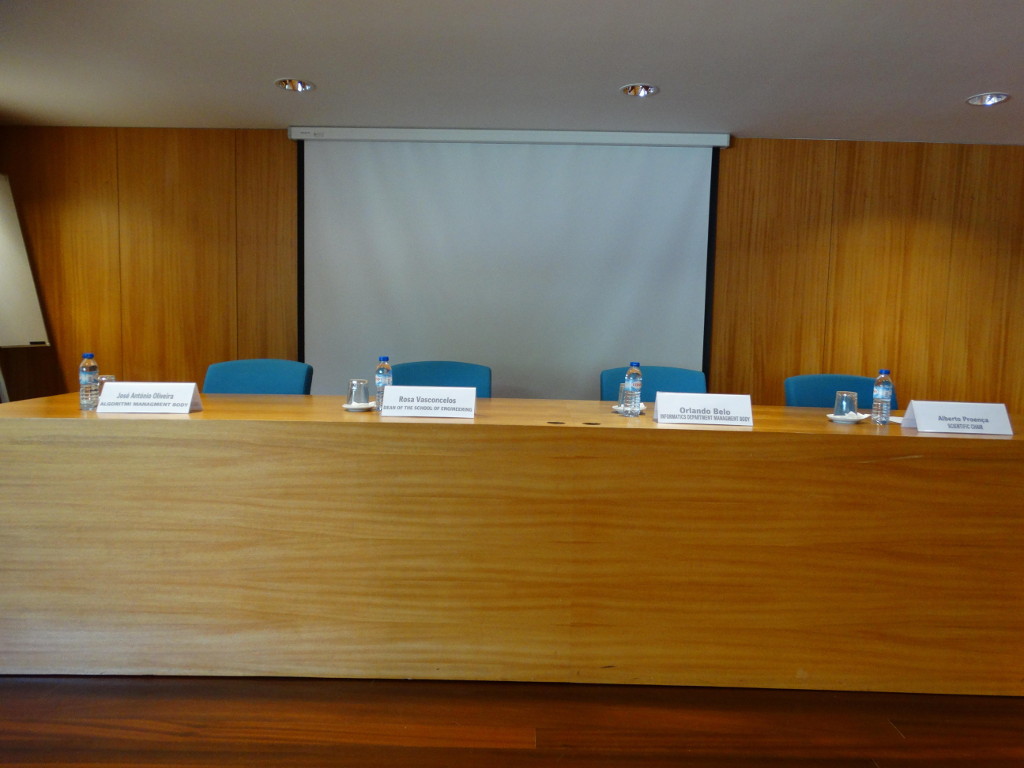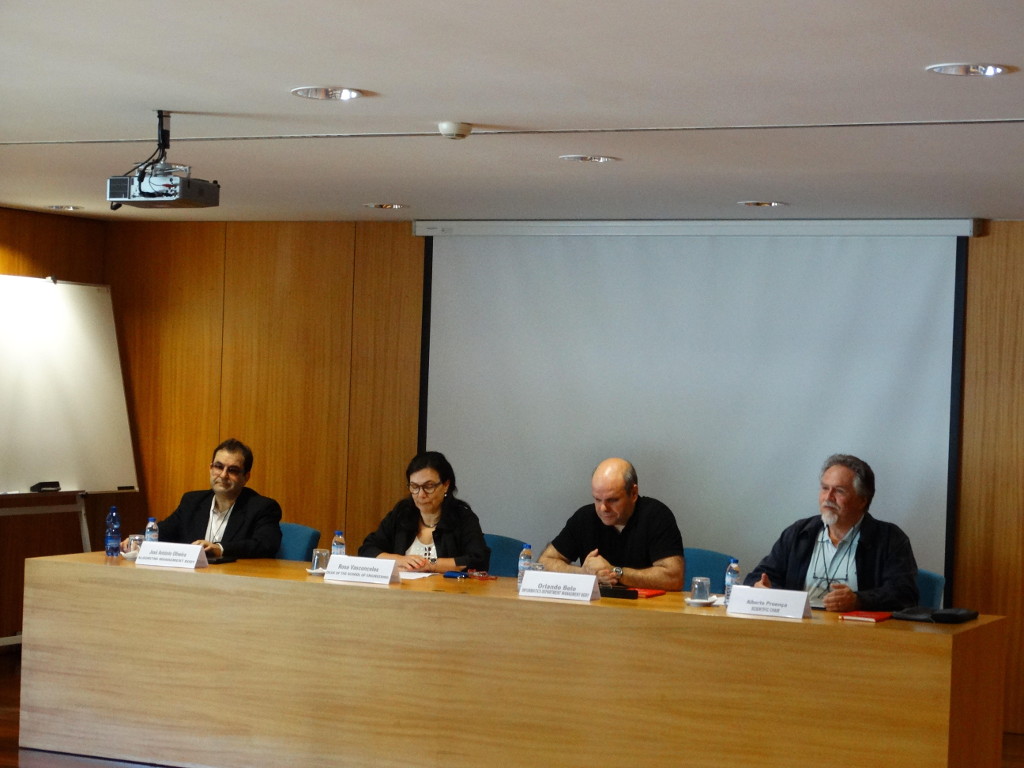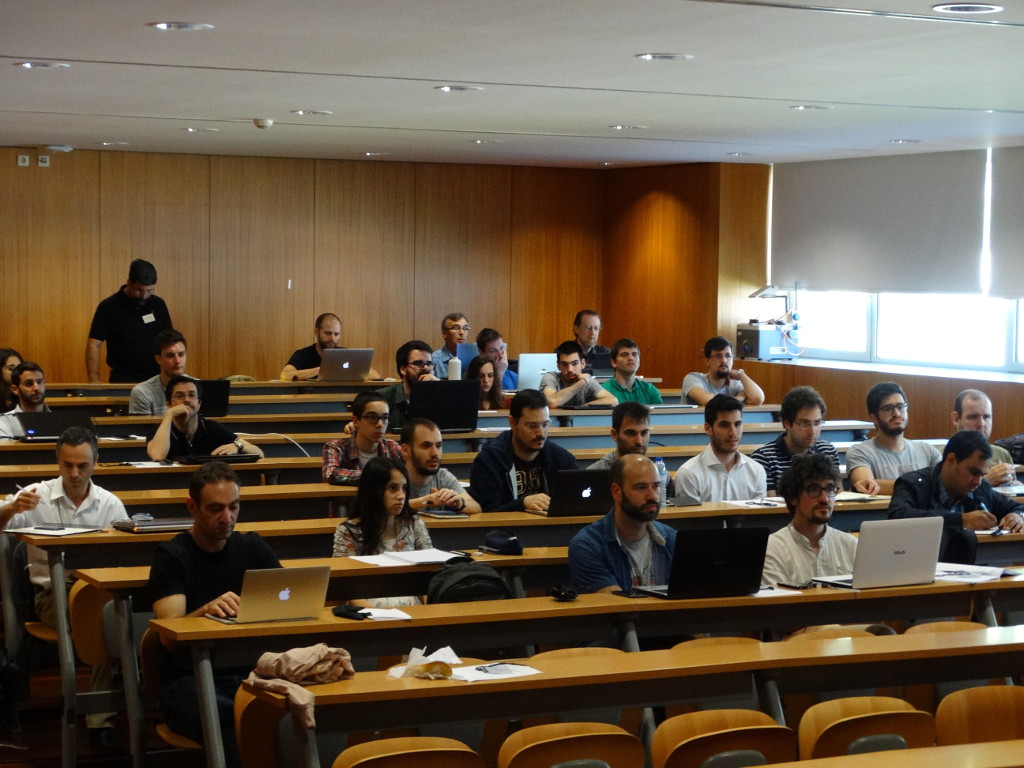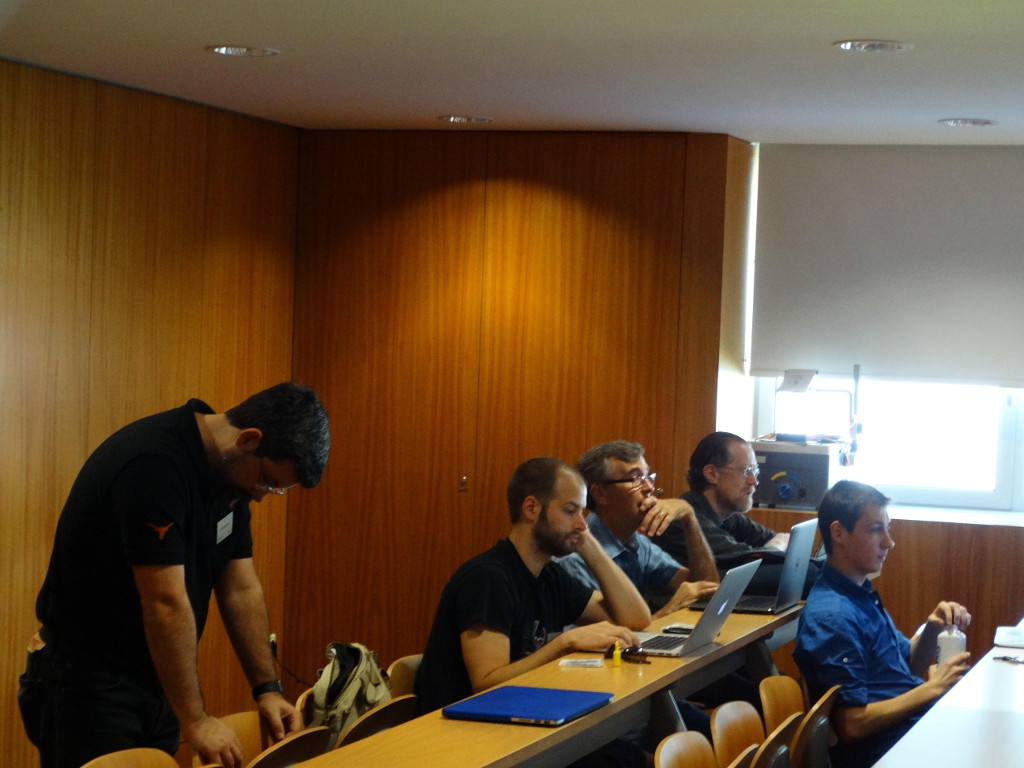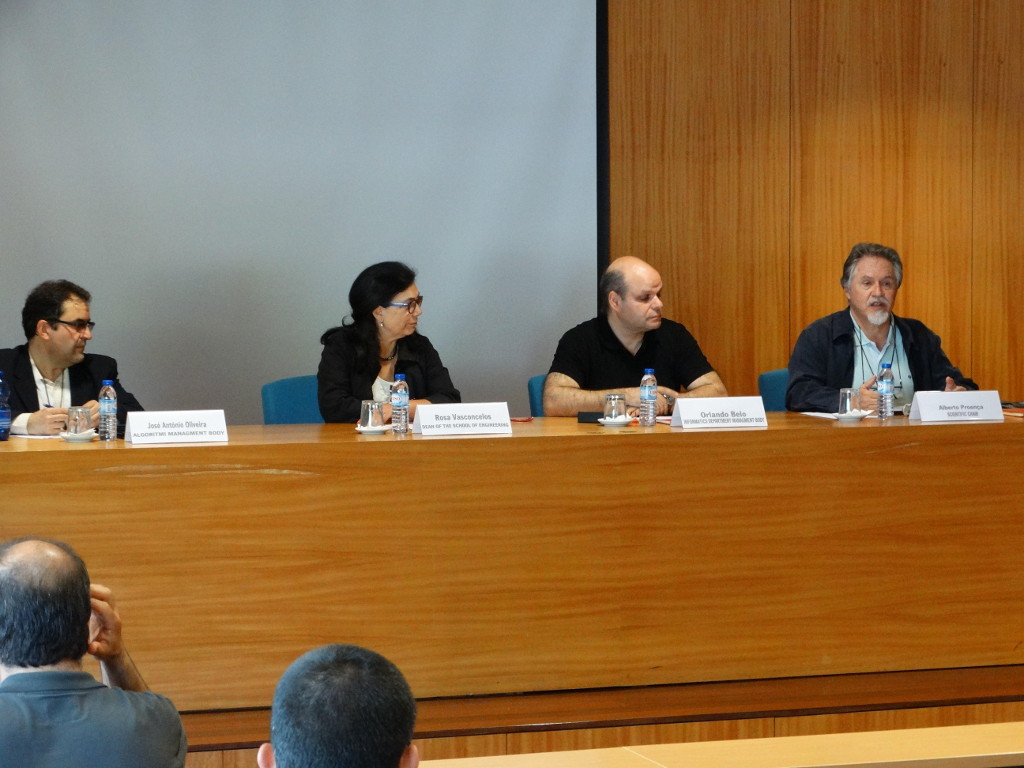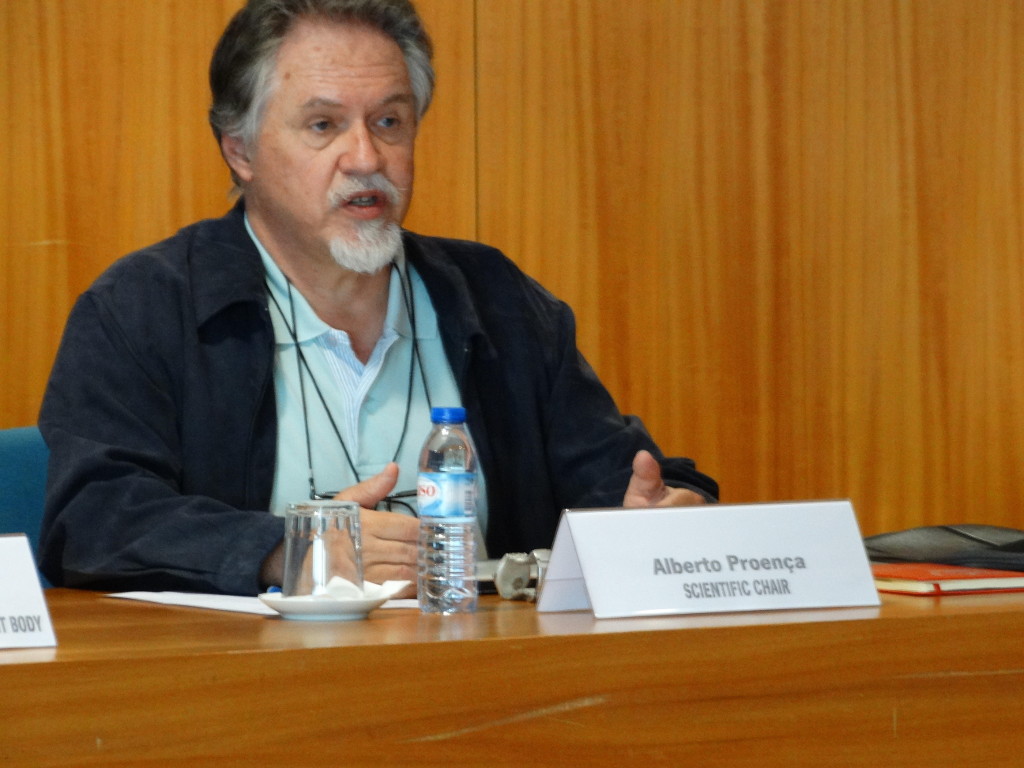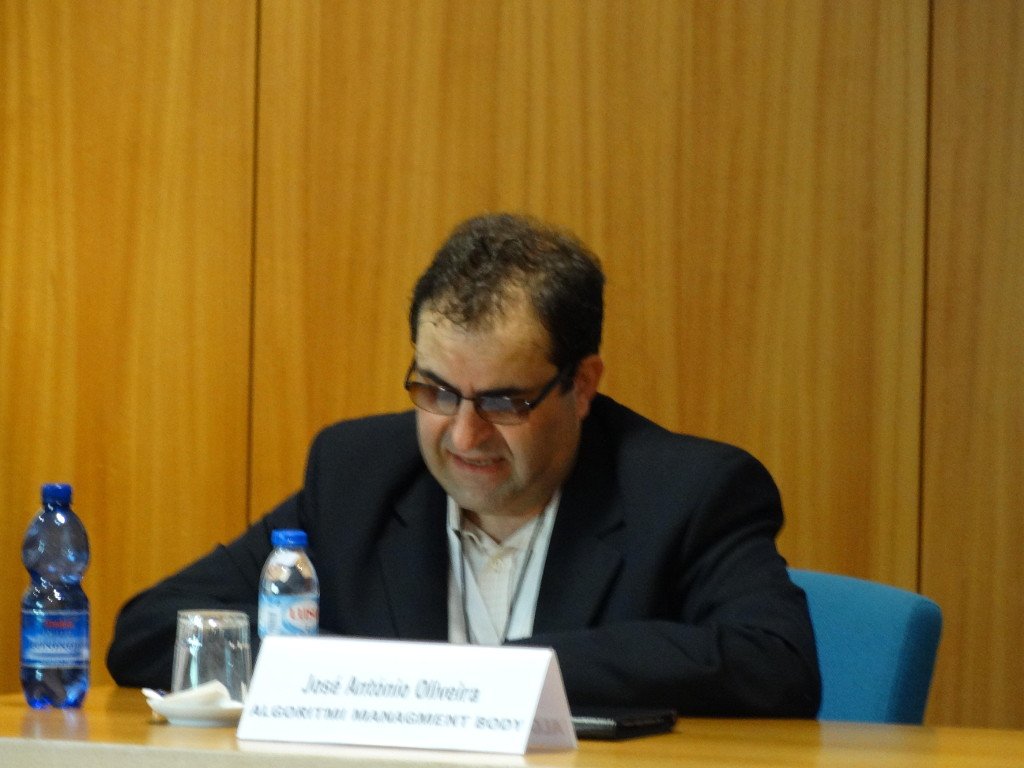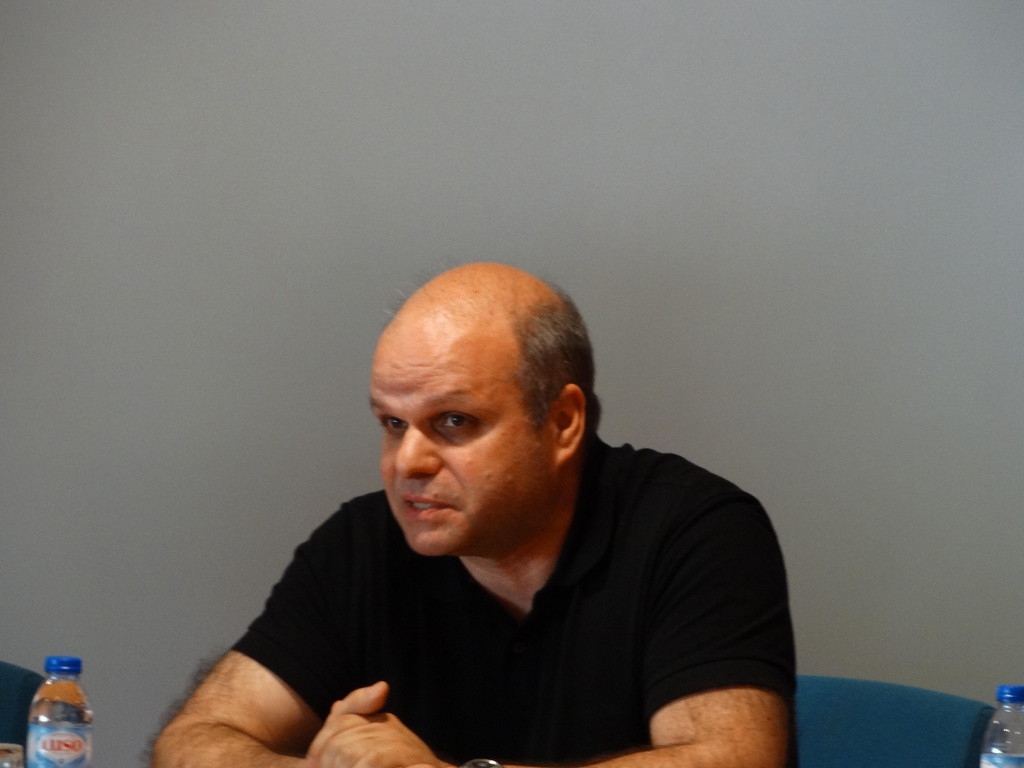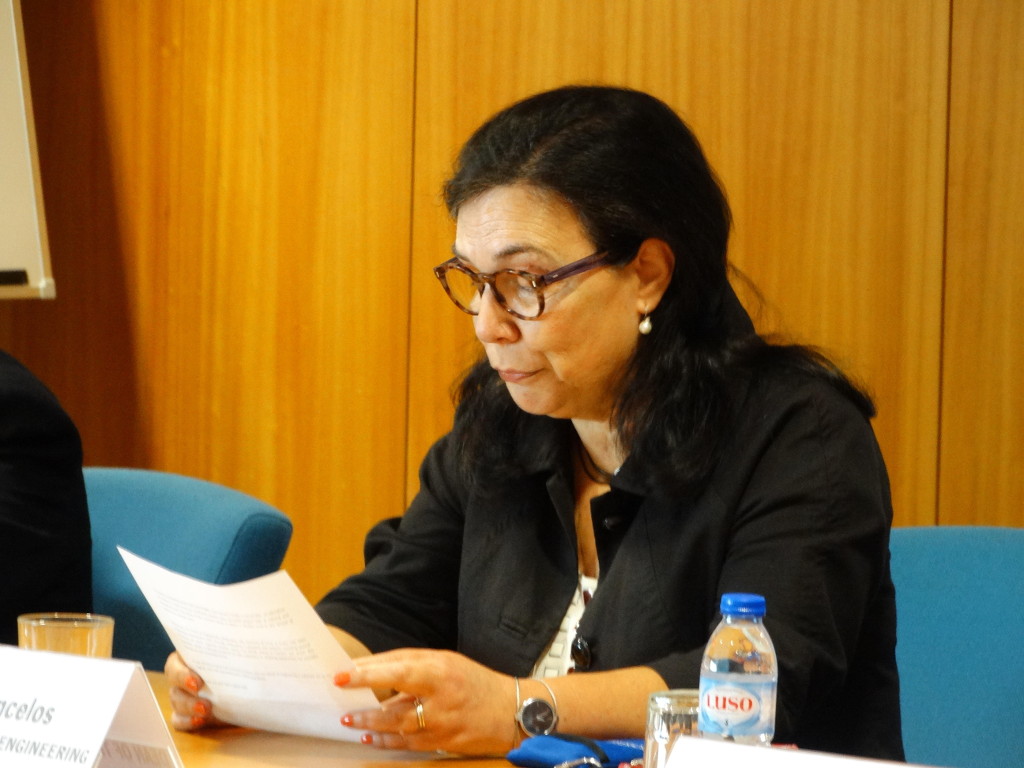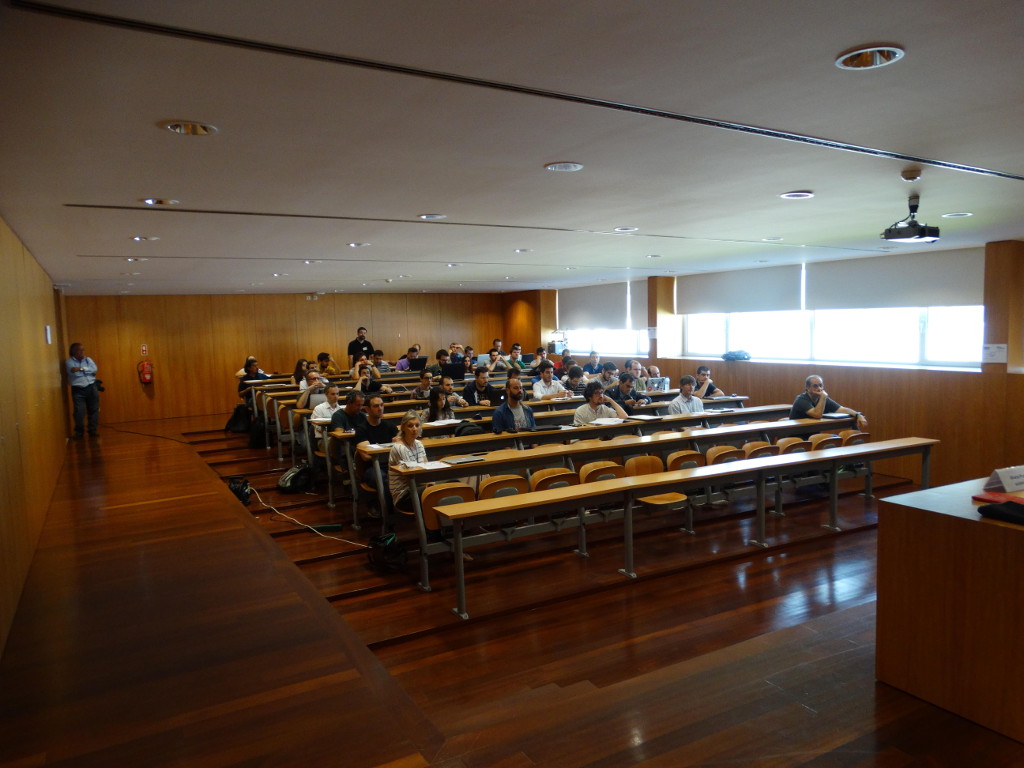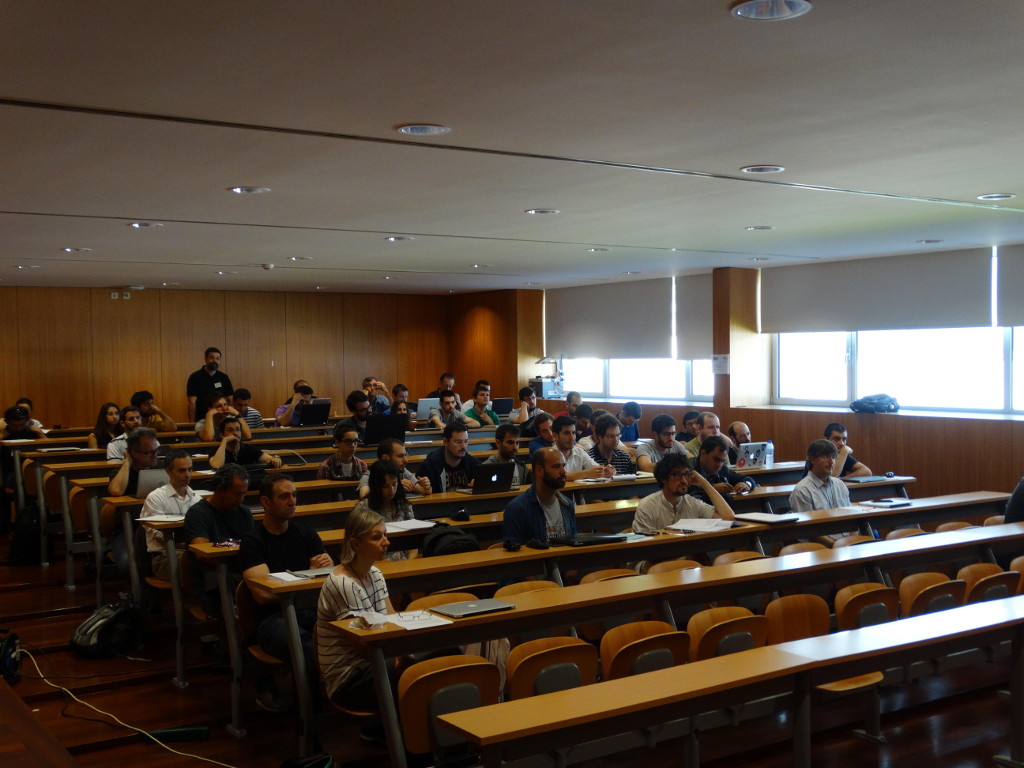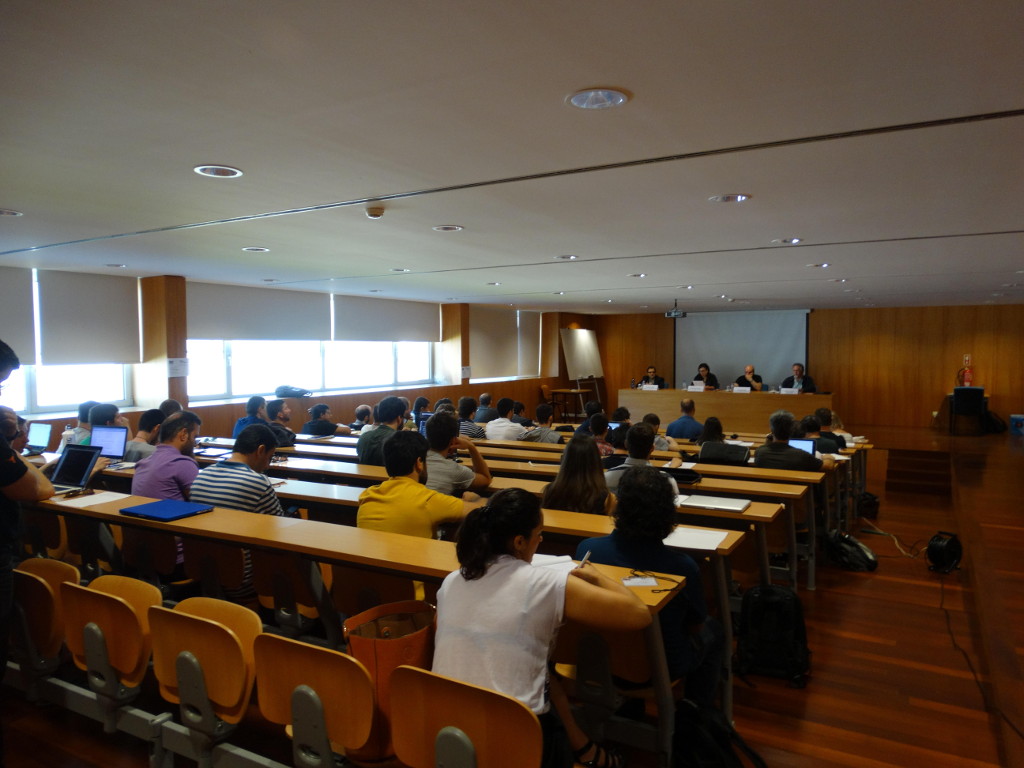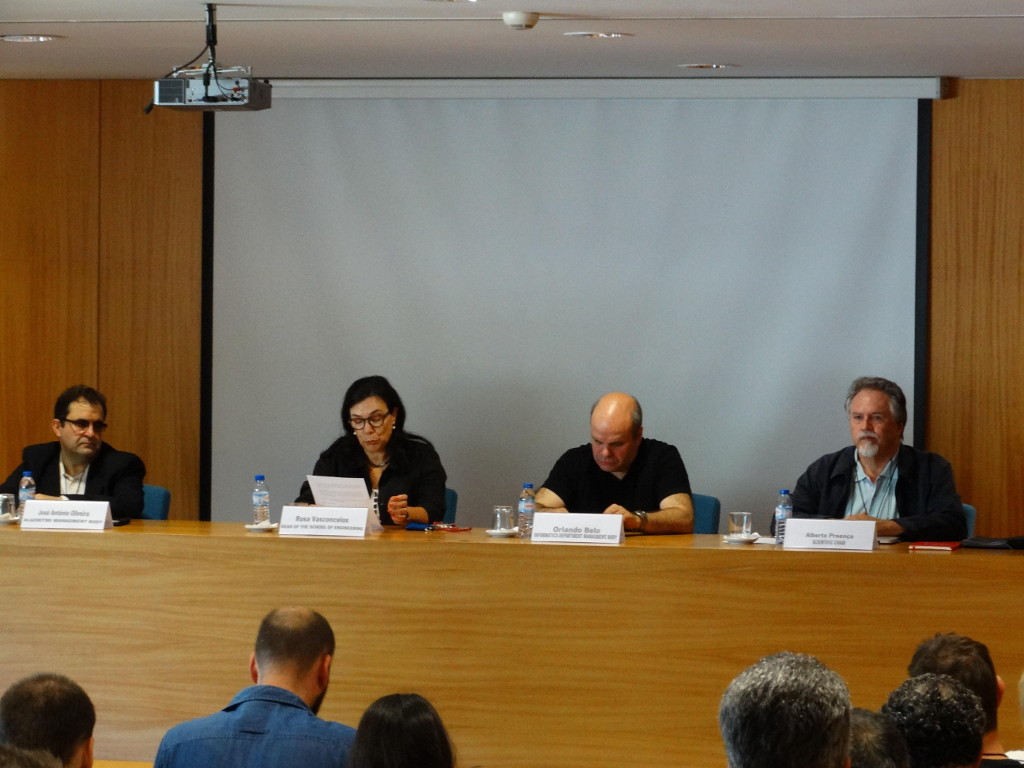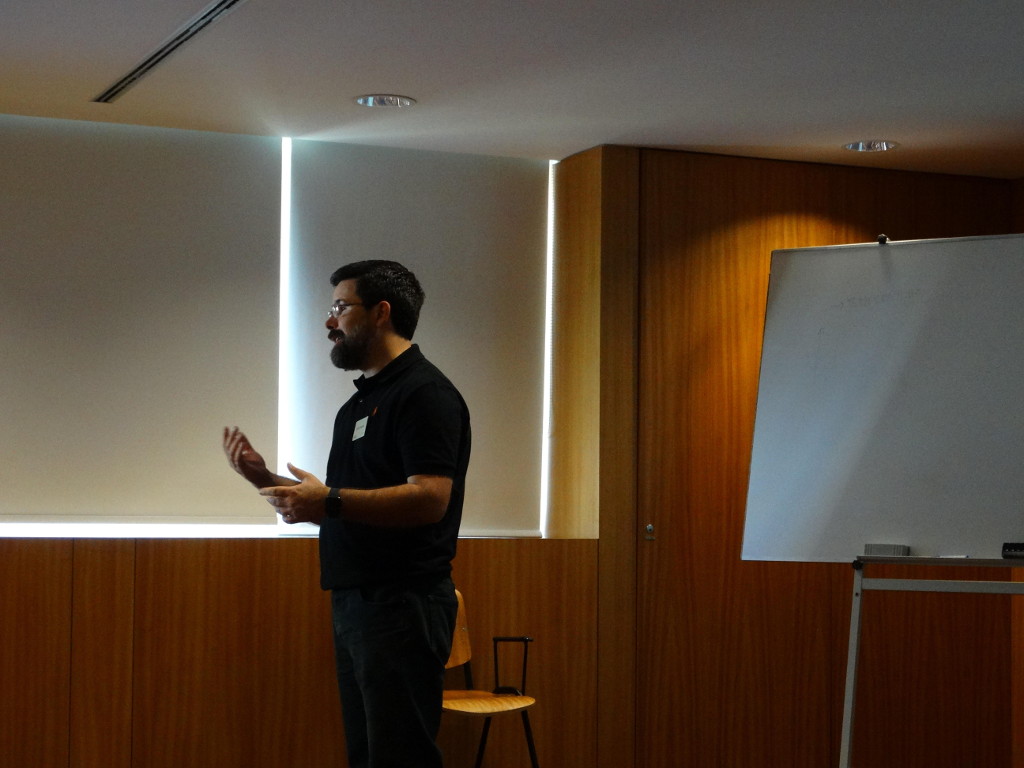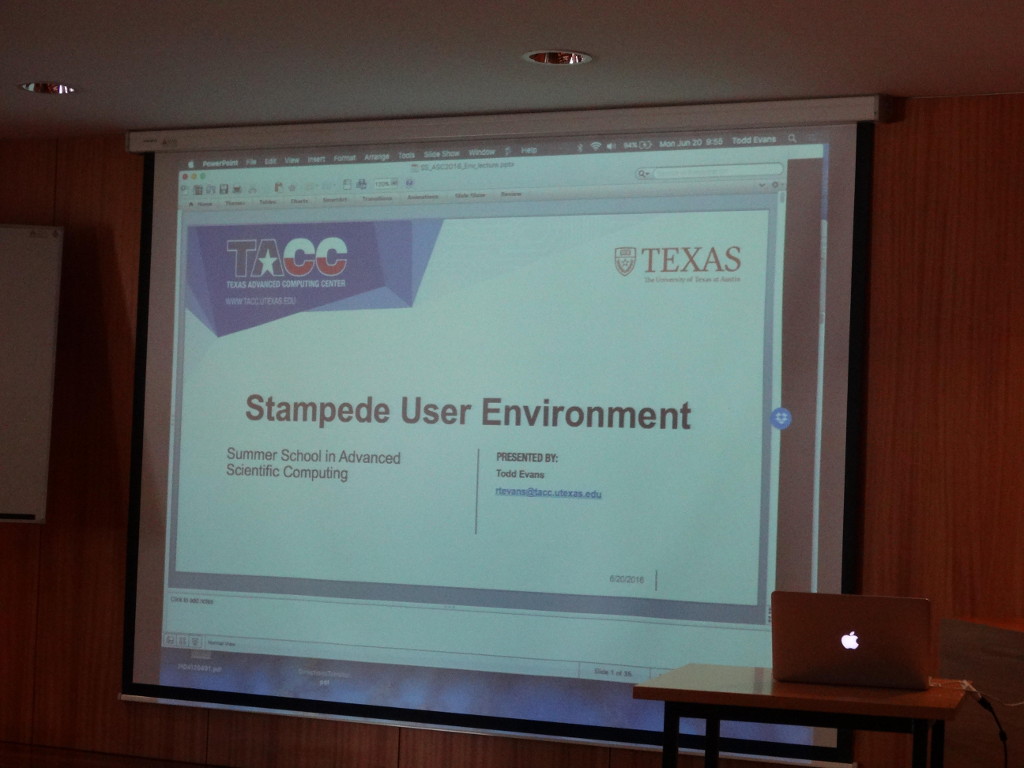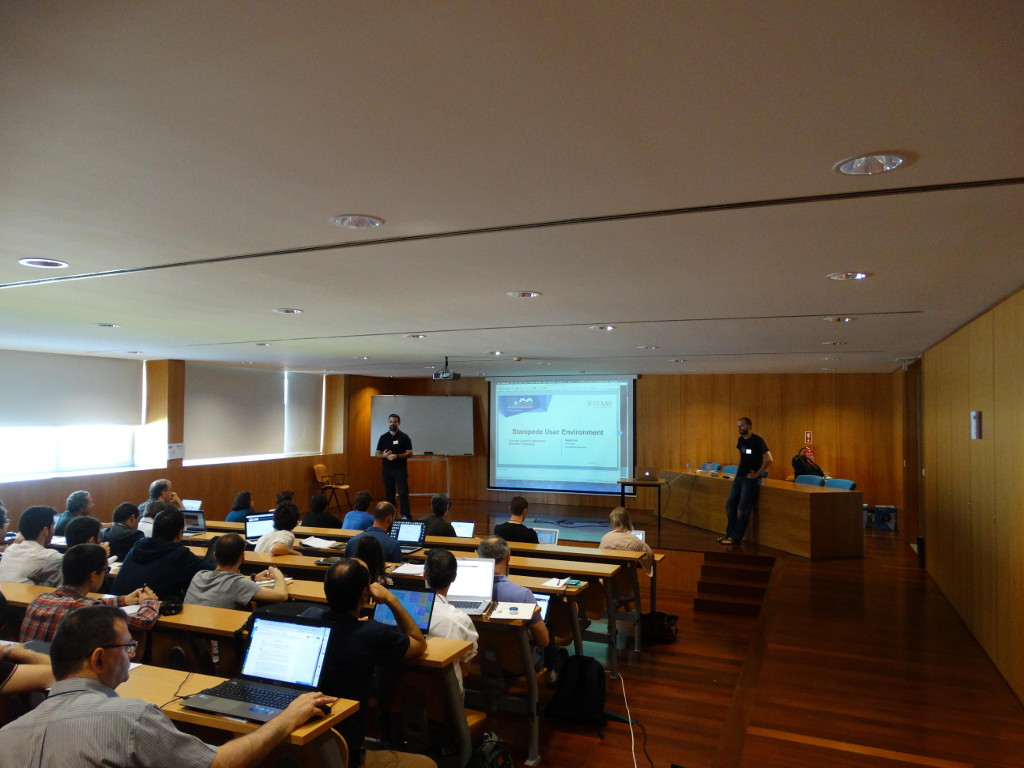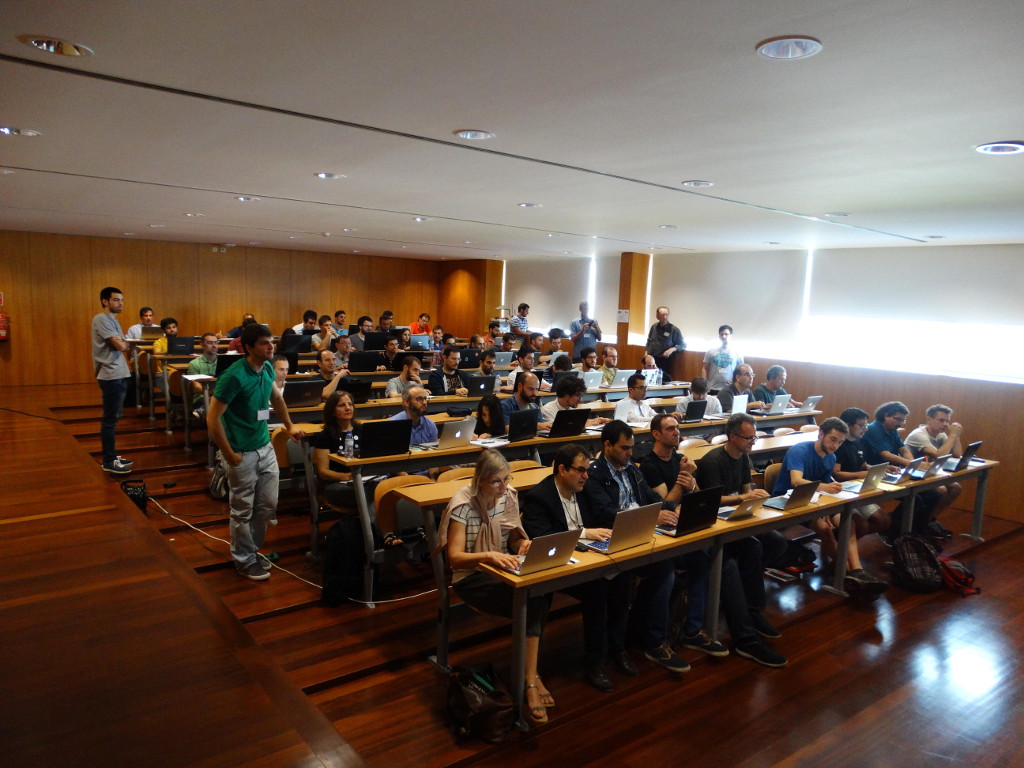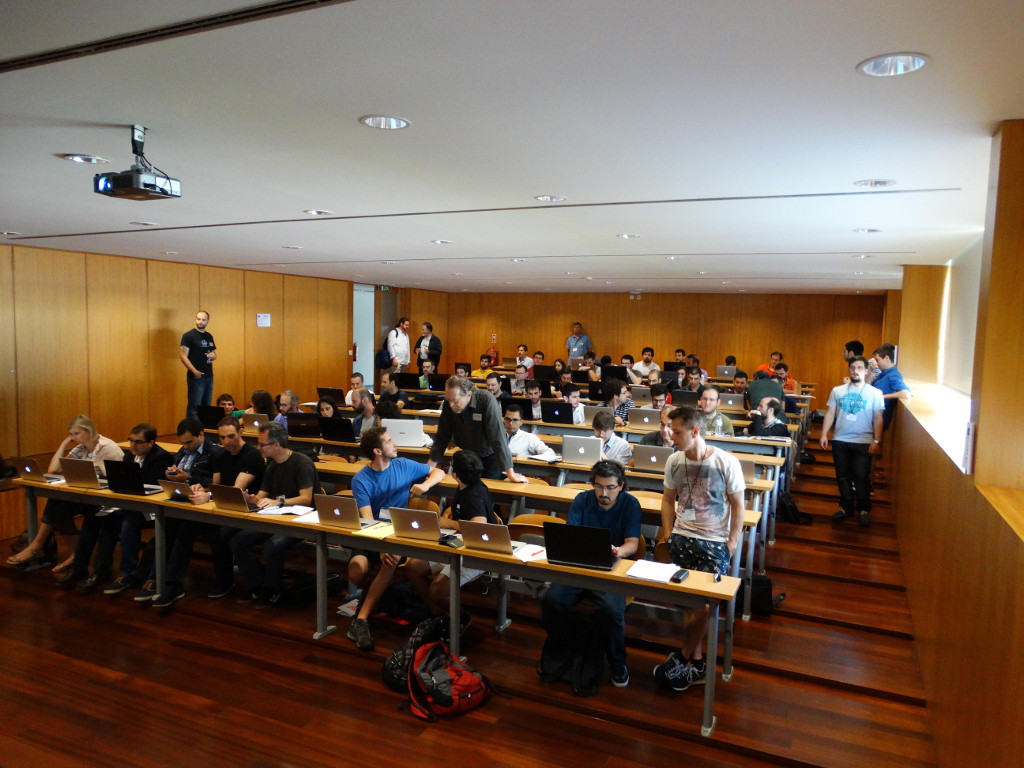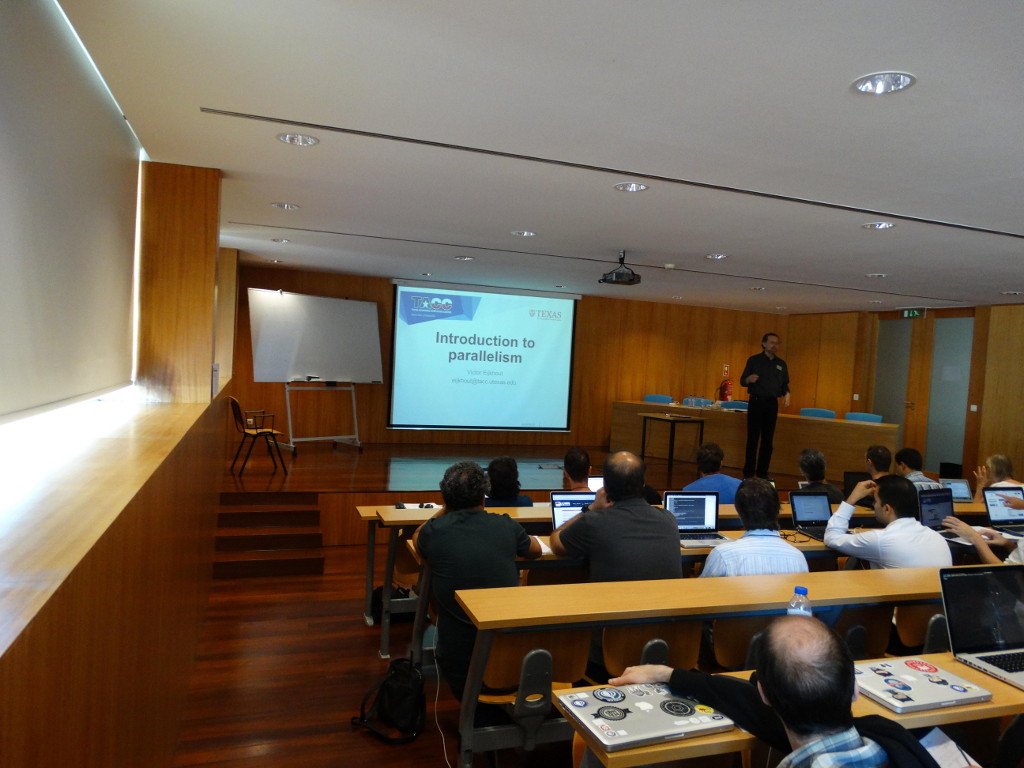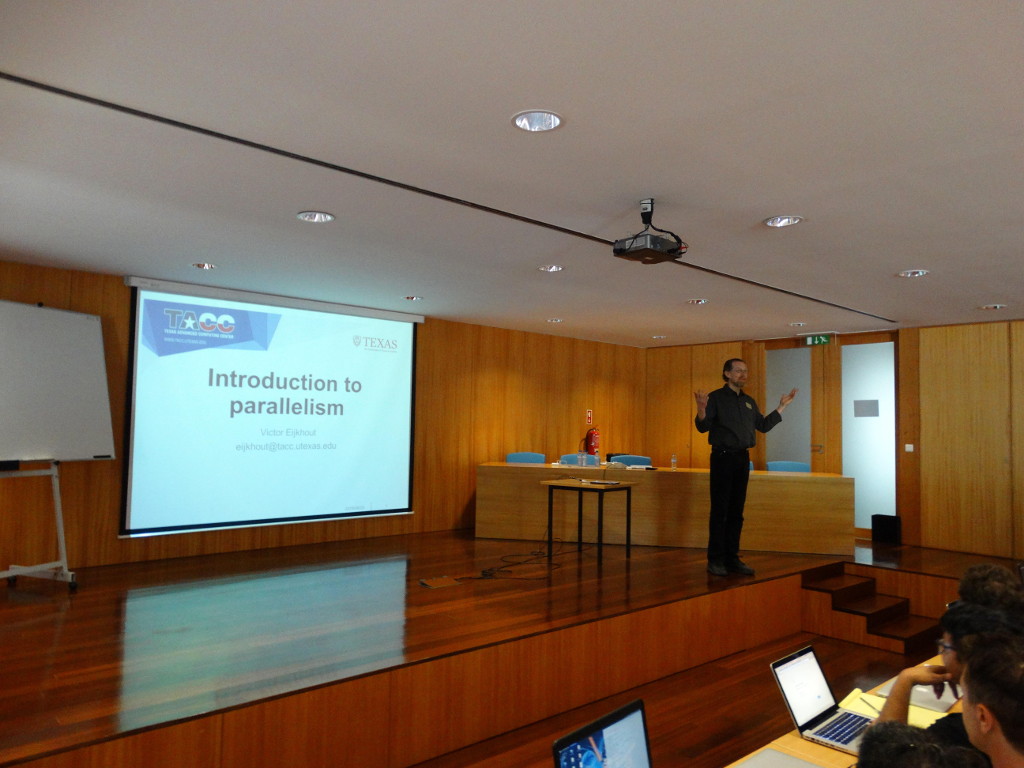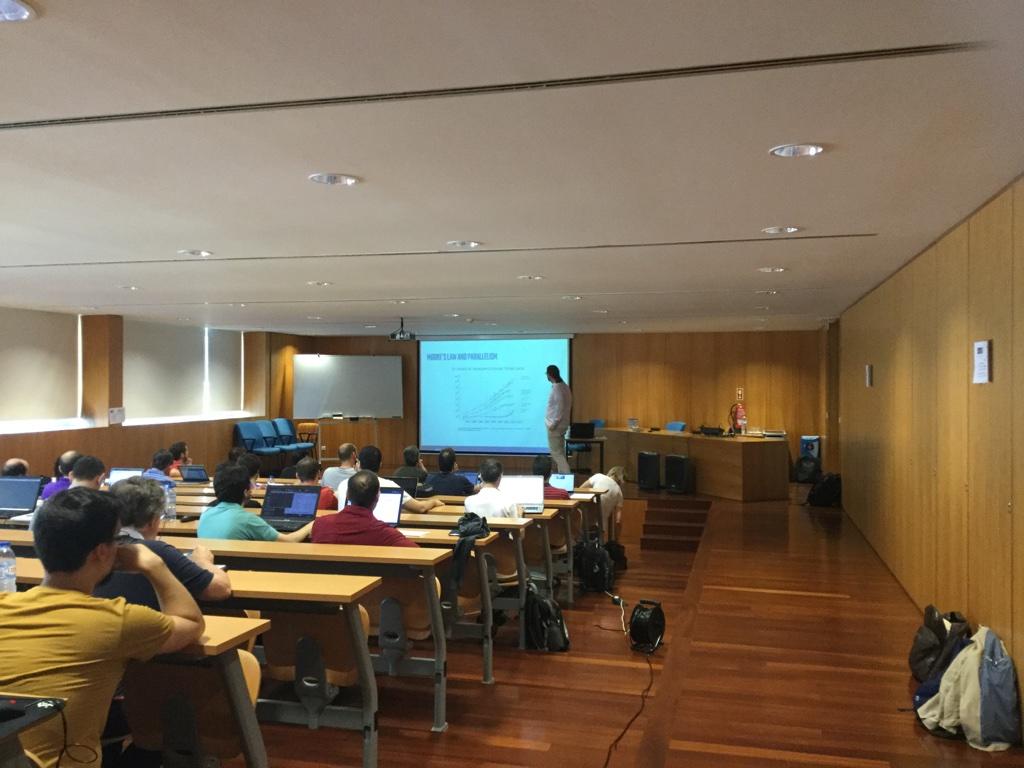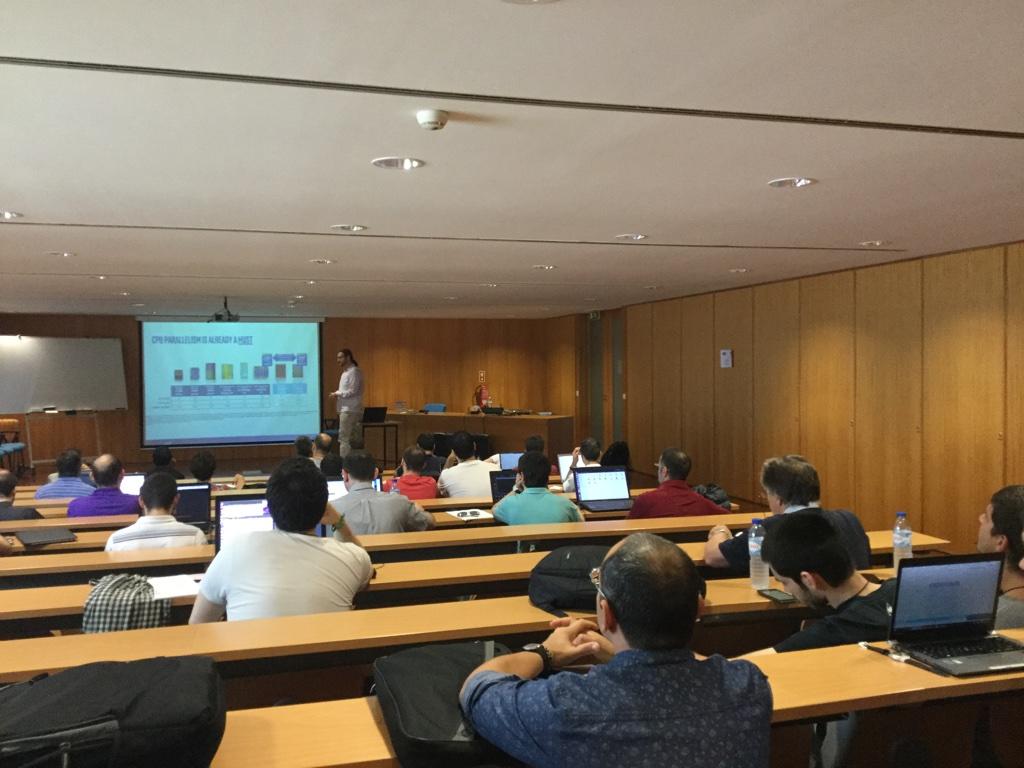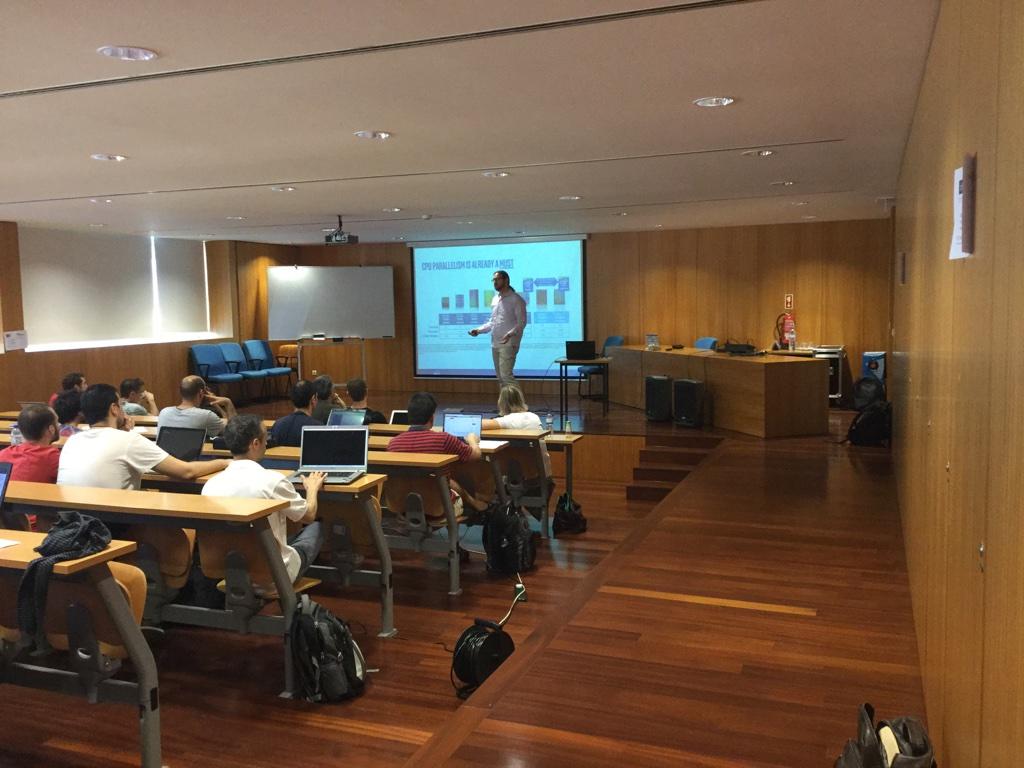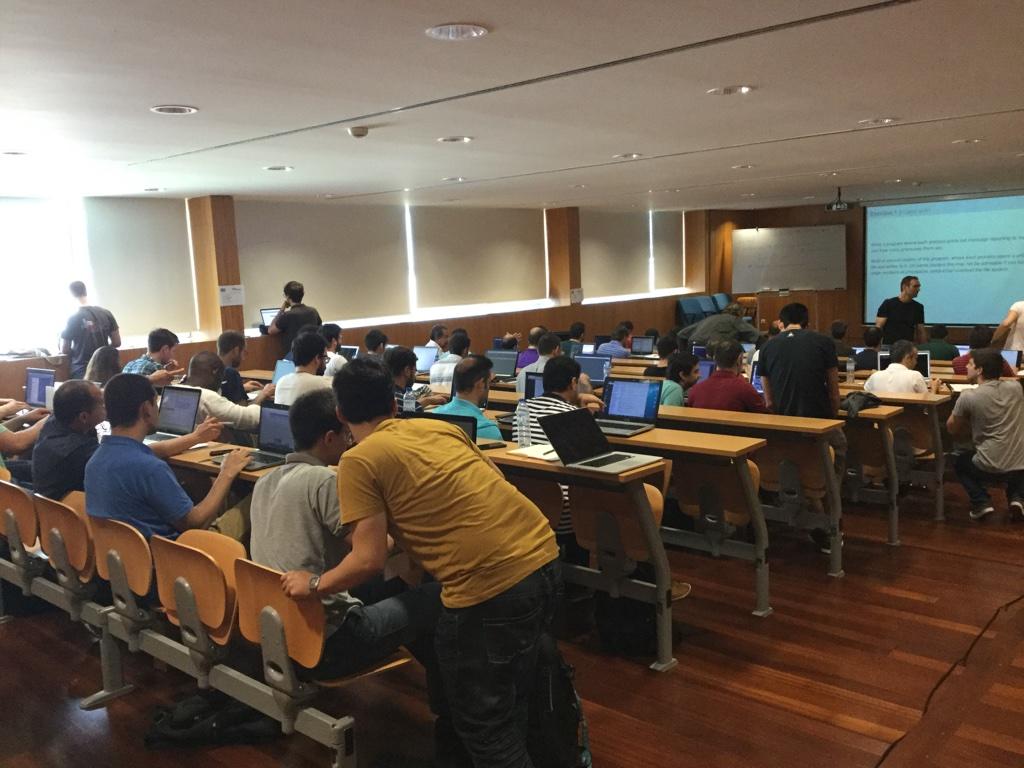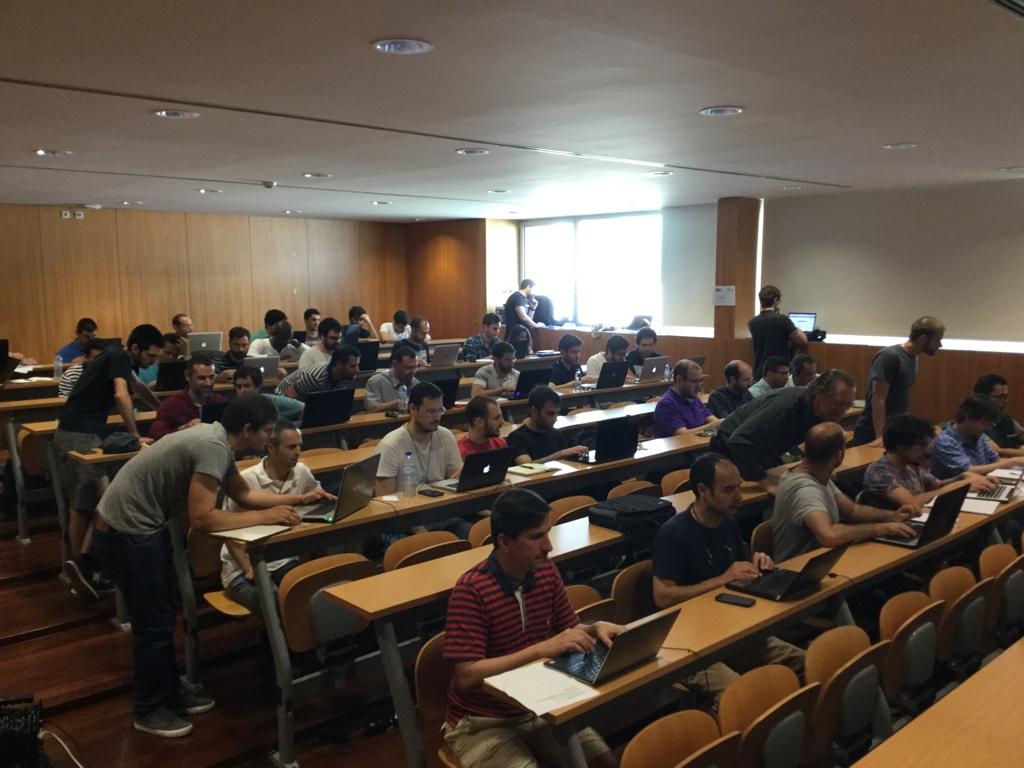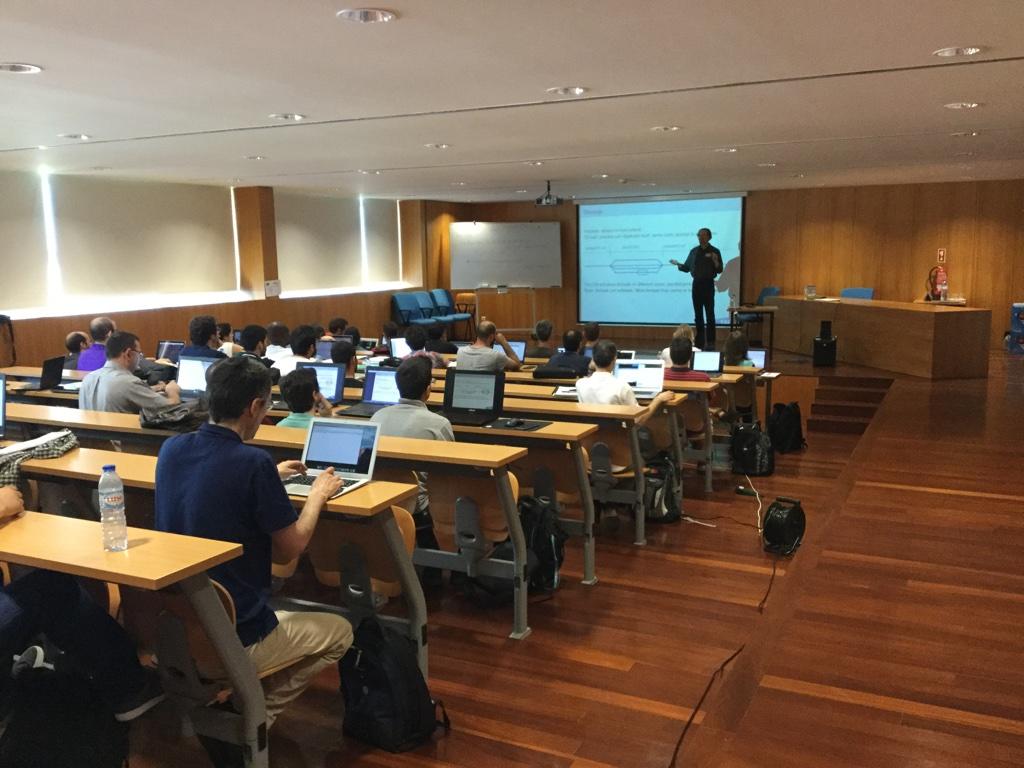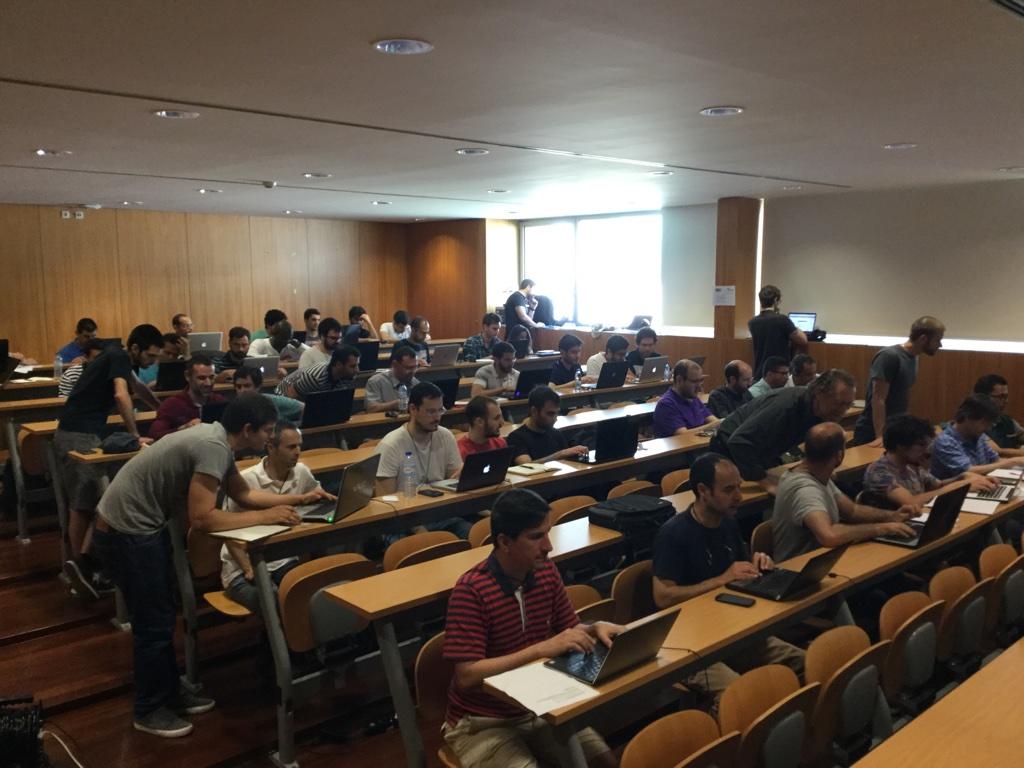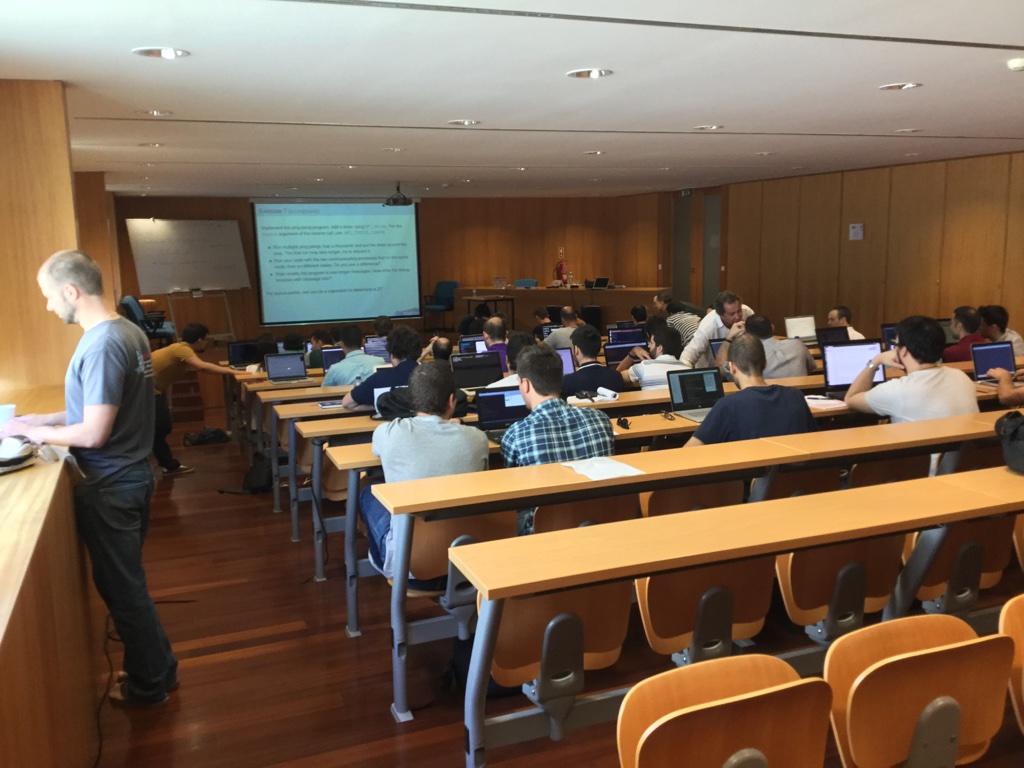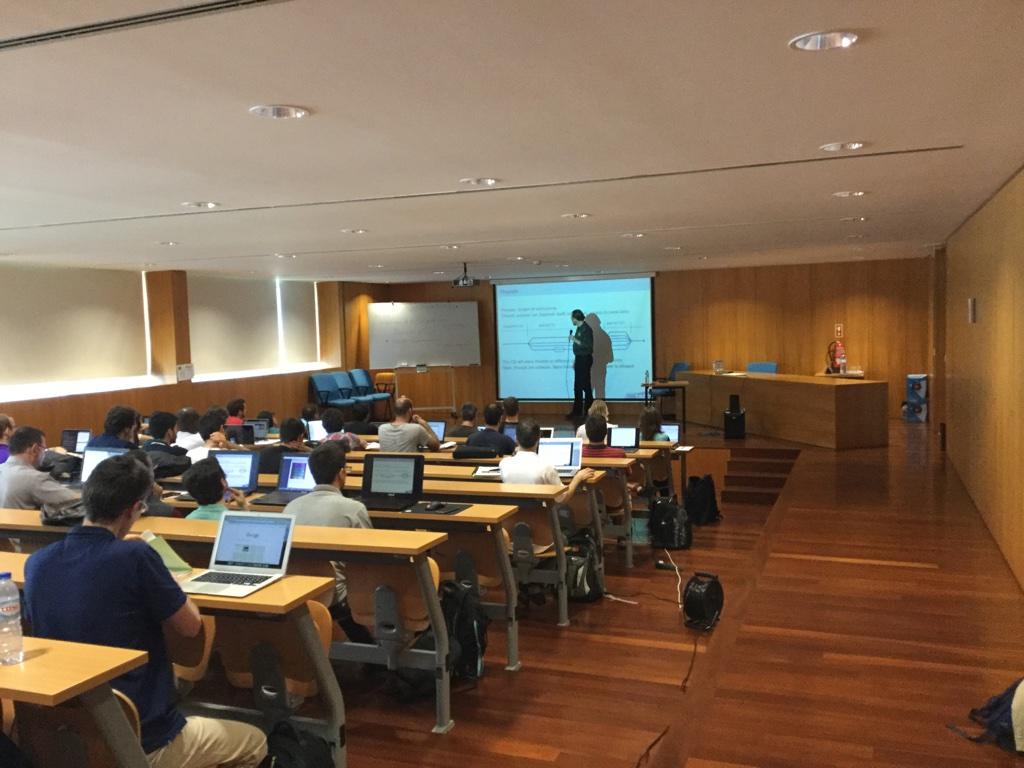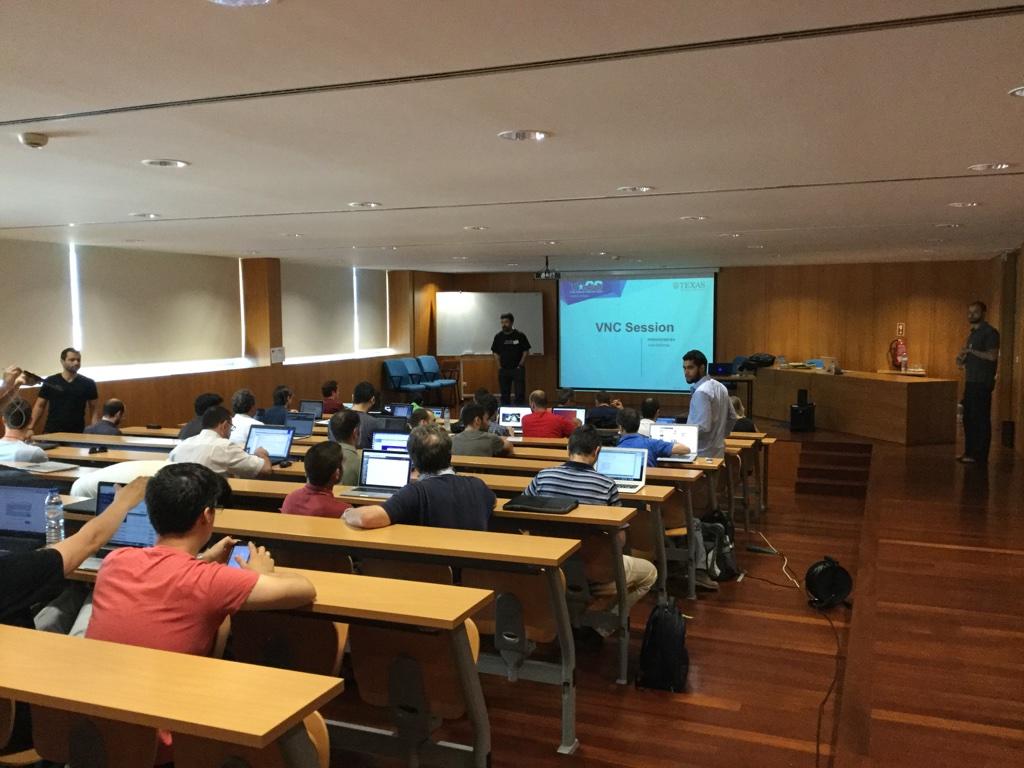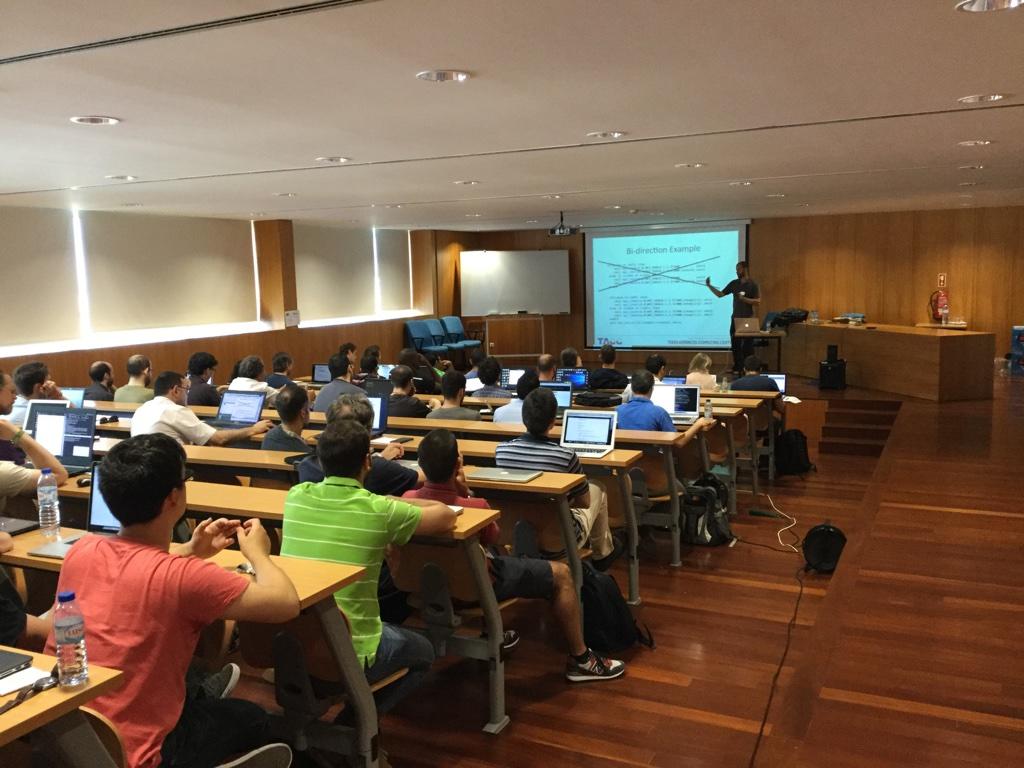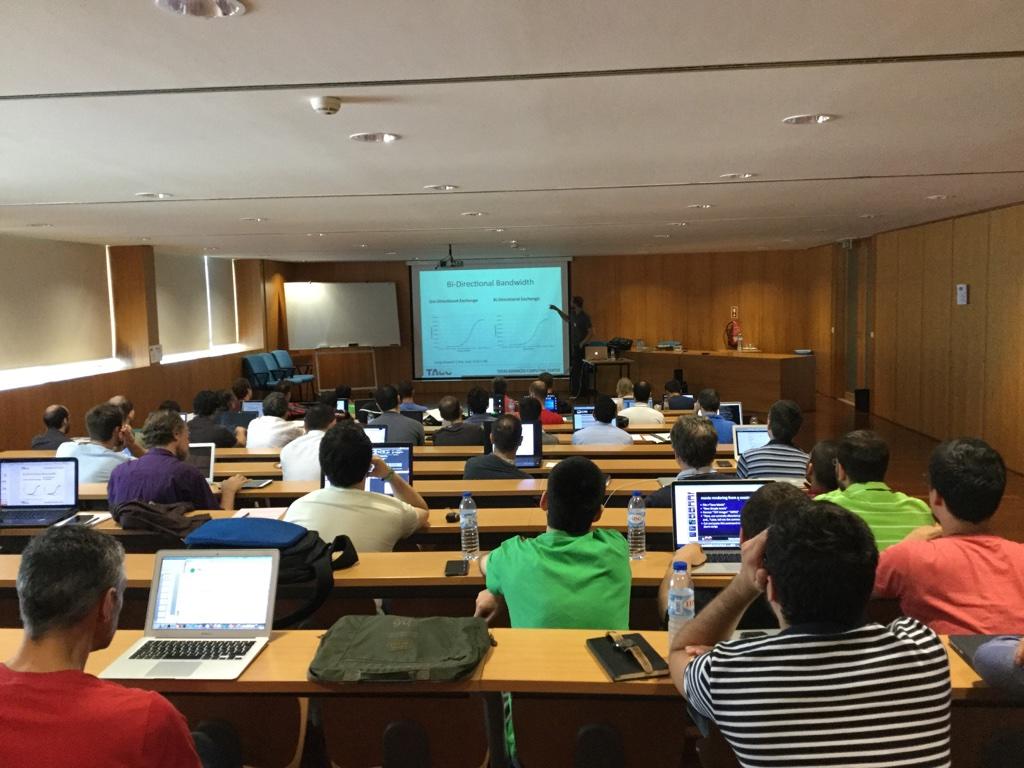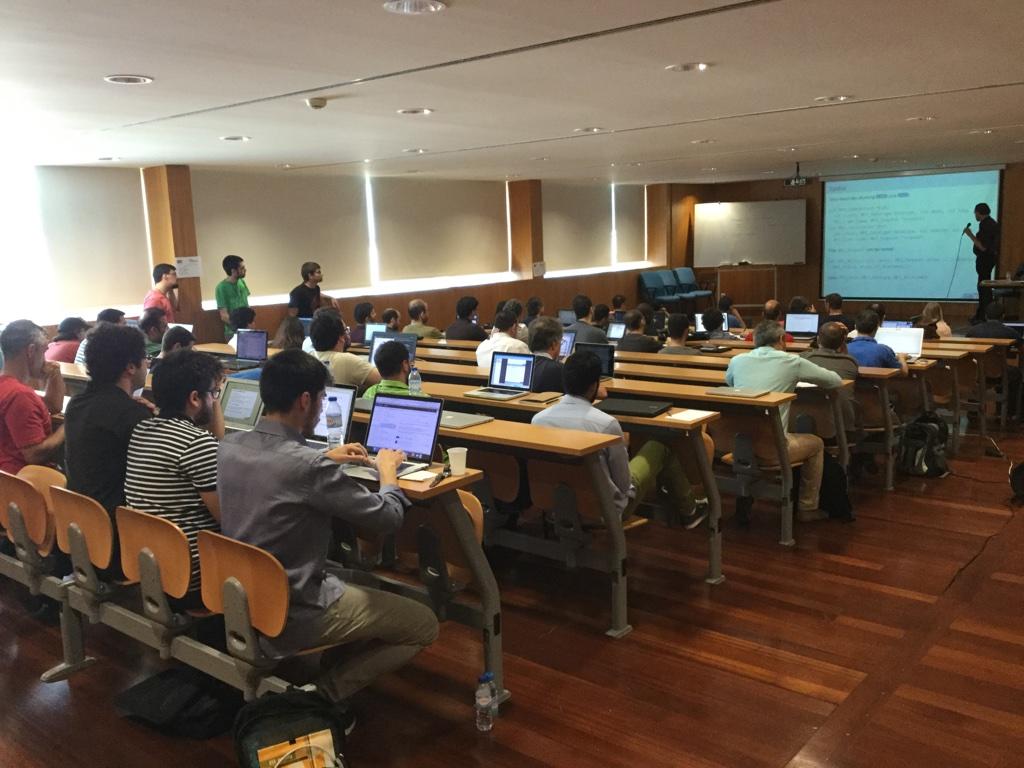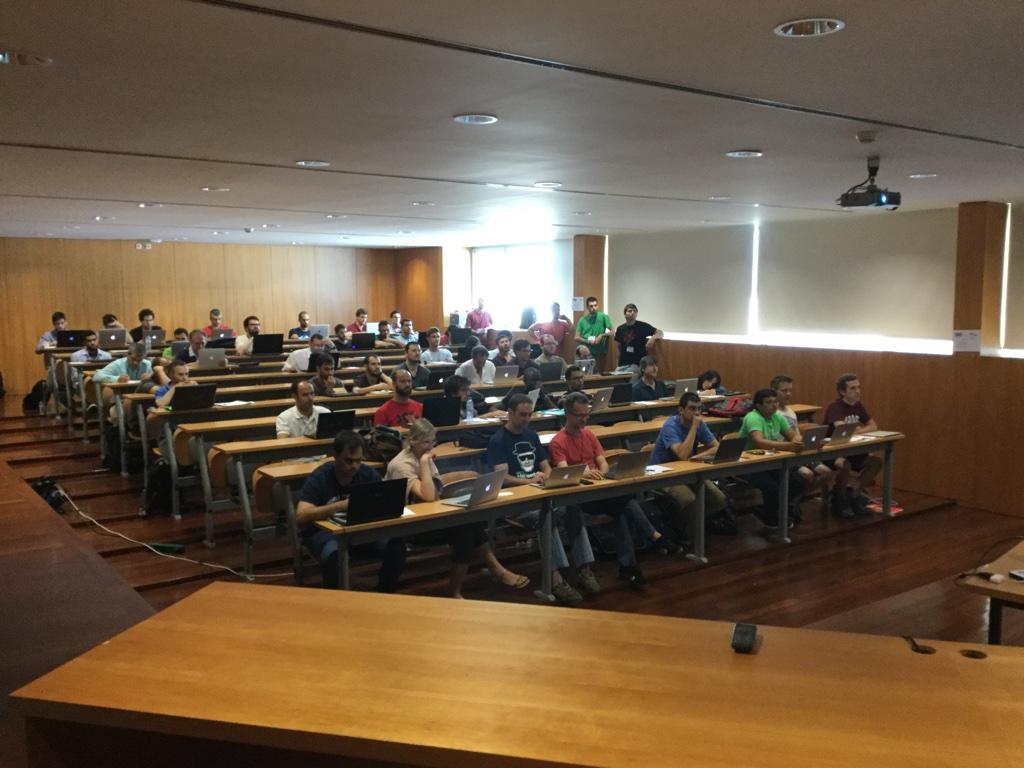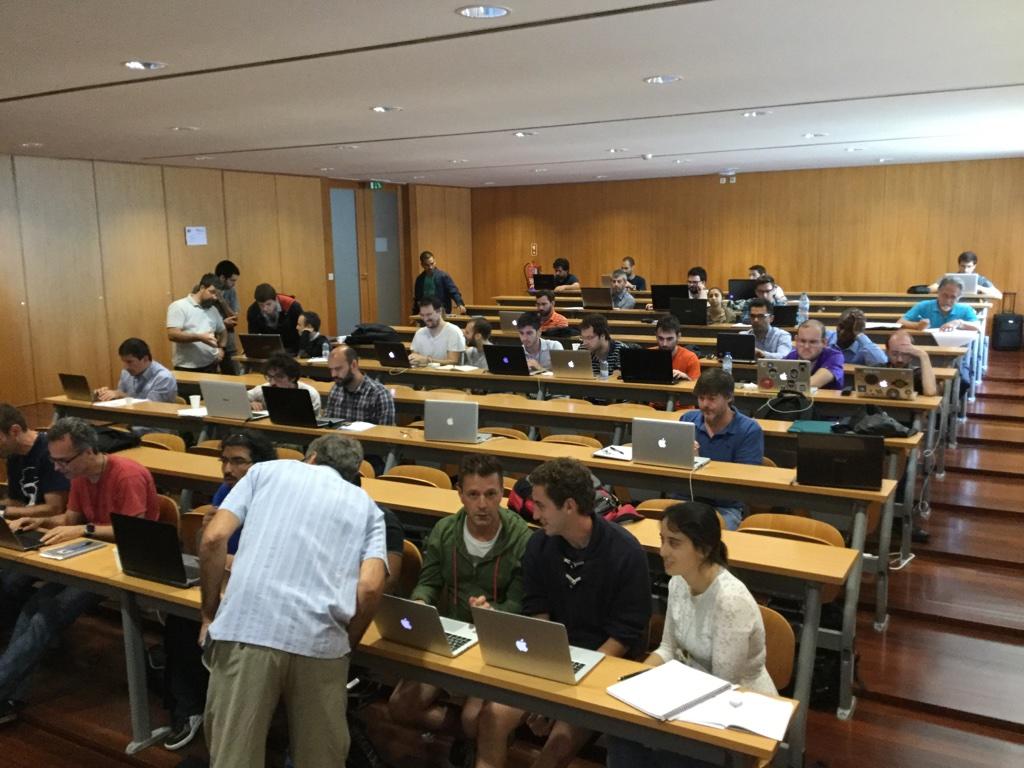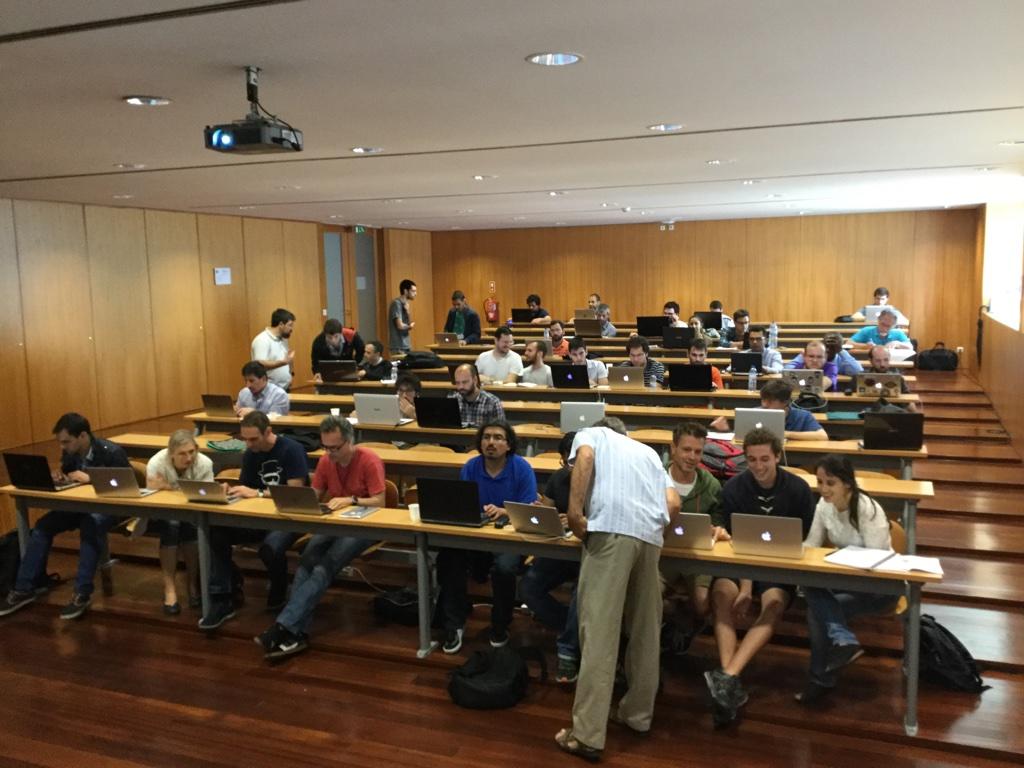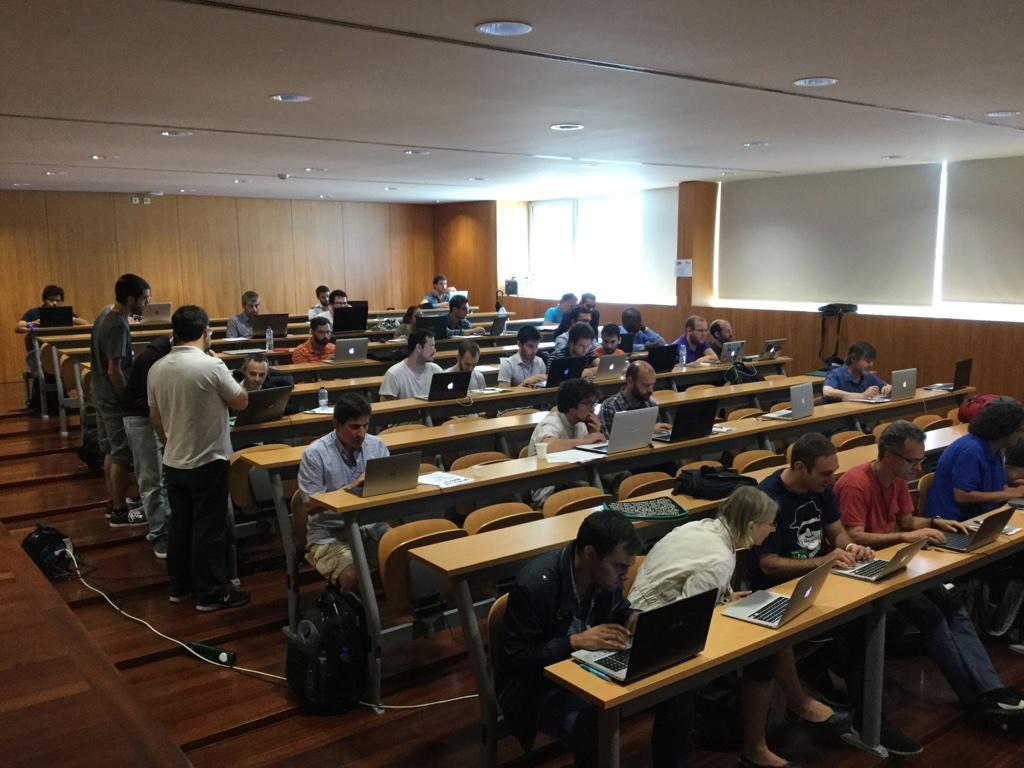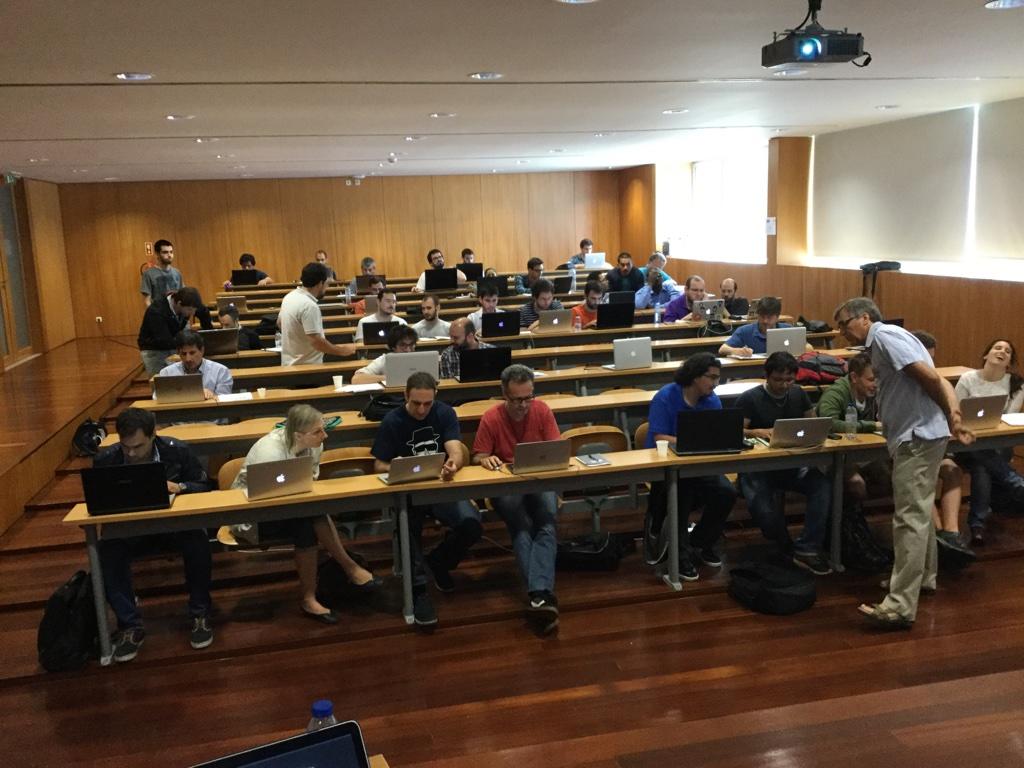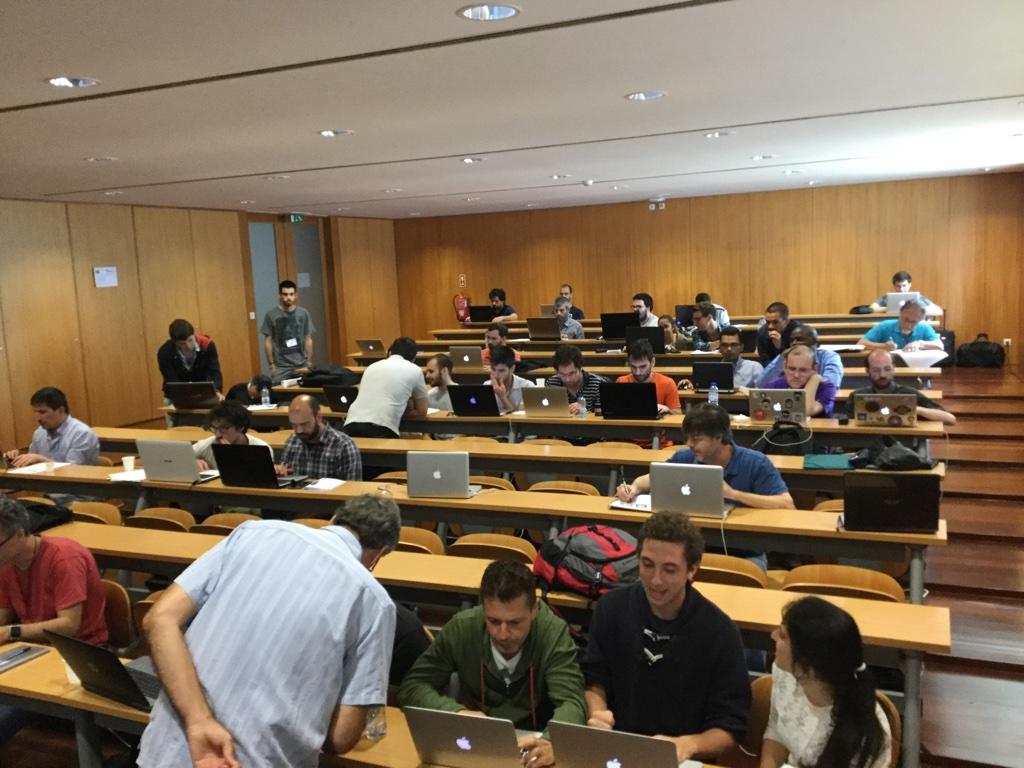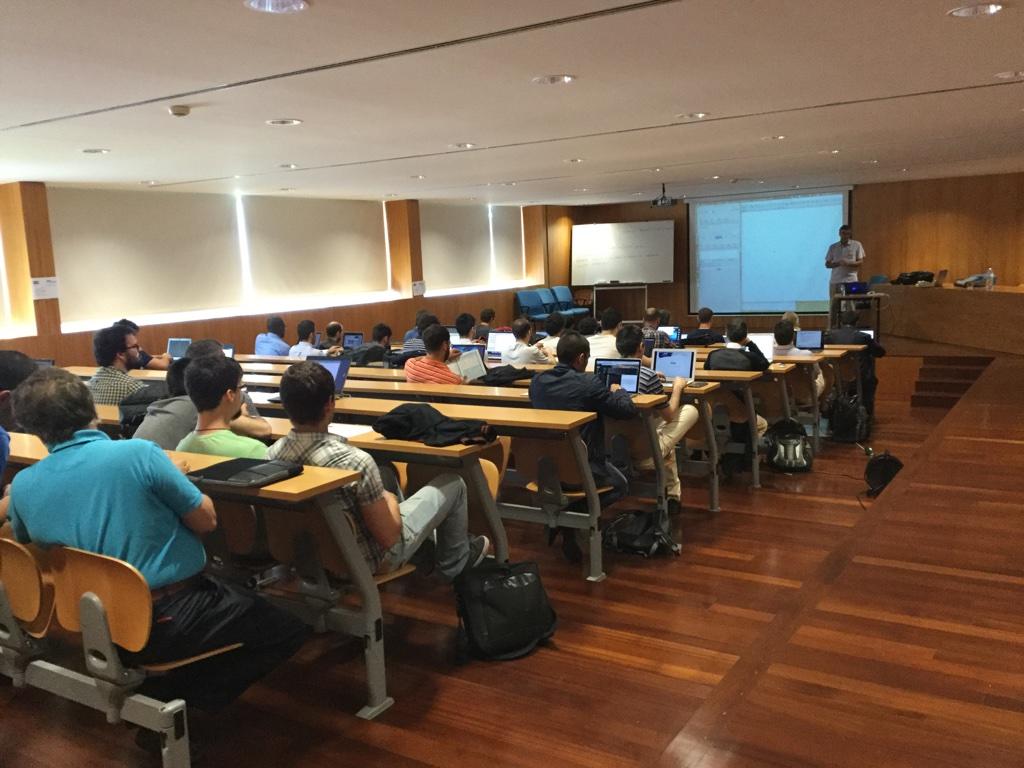Summer School in Advanced Scientific Computing
Monday 20th June - Thursday 23rd June
This Summer School in Advanced Scientific Computing in Europe, is a week-long workshop which introduces researchers, faculty, staff, students, and industrial partners to high performance computing, data analytics, and scientific visualization. TACC's technology experts will teach attendees how to effectively use advanced computing resources and technologies like Stampede, Maverick, and Wrangler.
This event is appropriate for all skill levels, from new users of advanced computing technologies to those who have research projects requiring powerful computing, visualization, storage or software capabilities.
The courses and lab classes in this Summer School will be supplied by experts in High Performance Computing (HPC) from the Texas Advanced Computing Center (TACC), at Austin, Texas, with experience in similar courses. This Summer School is the unique opportunity of attendance of this course in Europe and the contentes will be similar to those that TACC staff is preparing for the next TACC Summer Supercomputing Institute, using the same course and training materials and accessing the same remote HPC resources at TACC.
Researchers and PG students in Scientific Computing, both from Science and Engineering areas, with a need to efficiently use intensive computing resources, to process and visualize large quantities of data. The attendees should be motivated to take advantage of modern computer architectures based on an increasing number of CPU cores, to better explore their potential.
Agenda Instructors StuffInstructors
Dave Semeraro is a research associate at the Texas Advanced Computing Center at the University of Texas Austin. He is a member of the scalable visualization technology group. He conducts research in visualization techniques for large scale scientific data. Prior to his tenure at UT he was an associate director of the National Center for Supercomputing Applications at the University of Illinois. At NCSA he led the visualization group that supported both the Blue Waters petascale computing project and XSEDE users. Prior to NCSA Dave was a member of the math sciences section of the Oak Ridge National Laboratory and the aerodynamics research group at Northrop Aircraft division. Dave received his Ph.D. in computer science from the University of Illinois in 1992.
The organization of this Summer School is happy to announce that Intel agreed to bring one of his performance engineers to give details on the new 36 dual-core Xeon Phi, aka Knights Landing: Harald Servat.
Harald Servat is an HPC engineer at Intel working on optimizing applications for the next-generation HPC systems. Before that, he worked in the performance analysis tools developed at Barcelona Supercomputing Center where he was responsible for the instrumentation monitoring package. Harald Servat received a PhD in computer engineering from the Universitat Politècnica de Catalunya.
Joao Barbosa joined TACC Scalable Visualization team in 2011 as a Graduate Research Assistant while pursuing a Dual PhD at the University of Texas at Austin and the Portuguese MAP-i program in High Performance Graphics. Now as full time Research Associate at TACC, Joao has worked in several SciVis projects that range from high level applications such as Gas and Oil to low level high performance software packages such as GraviT and pvOSPRay in partnership with leading hardware and software companies. His current research focus lays in high performance real-time in-situs photo realistic ray tracing for SciVis.
Todd Evans joined TACC in 2013 as member of the High Performance Computing group. Todd received his Ph.D. in Physics from the University of Illinois at Urbana-Champaign in 2008. He spent the following two years as a postdoc in high-energy physics at the University of Regensburg and then three years as a postdoc in Nuclear Engineering at North Carolina State University. Since joining TACC his research focus has been HPC systems and application performance monitoring and analysis.
Victor Eijkhout has a degree in numerical analysis from the Katholieke Universiteit Nijmegen, specializing in parallel linear algebra. He has since held positions at the University of Illinois, University of California Los Angeles, and the Unversity of Tennessee at Knoxville, joining TACC’s HPC group in 2005. He has published numerous articles in scientific computing, as well as textbooks on iterative methods, scientific computing, and parallel programming in MPI/OpenMP. His current research interest is in systematic approaches to deriving parallel programs.
Agenda
| 20th June-Monday | |
|---|---|
| 09:00-10:00 | Welcome/Check-in |
| 10:00-11:00 | Linux Cluster Programming & Environment |
| 11:00-11:30 | coffee break |
| 11:30-12:30 | Intro to parallel computing Serial & Vector Optimization |
| 12:30-14:00 | lunch |
| 14:00-15:00 | Serial & Vector Optimization |
| 15:00-16:00 | Serial & Vector Optimization Labs |
| 16:00-16:30 | coffee break |
| 16:30 | Consulting with staff |
| 21st June-Tuesday | |
|---|---|
| 09:00-10:00 | Intro to Xeon Phi Knights Landing Processor MPI Lecture/Lab |
| 10:00-11:00 | MPI Lecture/Lab |
| 11:00-11:30 | coffee break |
| 11:00-12:30 | MPI Lecture/Lab (continued) |
| 12:30-14:00 | lunch |
| 14:00-16:00 | OpenMP Lecture/Lab |
| 16:00-16:30 | coffee break |
| 16:30 | Consulting with staff |
| 22nd June-Wednesday | |
|---|---|
| 09:00-10:00 | Parallel Optimization Lecture/Lab |
| 10:00-11:00 | Profiling Tools |
| 11:00-11:30 | coffee break |
| 11:30-12:30 | Debugging Parallel Applications |
| 12:30-14:00 | lunch |
| 14:00-15:00 | Profiling Tools Lab |
| 15:00-16:00 | Advanced MPI Lab |
| 23rd June-Thursday | |
|---|---|
| 09:00-10:00 | Introduction to Visualization |
| 10-00-11:00 | Introduction to Scientific Visualization |
| 11:00-11:30 | coffee break |
| 11:00-12:30 | Scientific Visualization - Paraview Lab |
| 12:30-14:00 | lunch |
| 14:00-15:00 | Scientific Visualization - Visit Lab |
| 15:00 | Closing session |
Registration
Registration is free and mandatory.
The number of participants is limited to 60.
Applications should be submitted before Monday 13th June. Confirmation of the registration will be emailed on the 15th June.
Participants are encouraged to bring their own laptops. Laptop computers will not be provided for participants.
City
Braga, capital of the Minho province, is an ancient city, more than 2000 years old, in the heart of the green and fertile region known as the Costa Verde. The region is known for its attractiveness in terms of climate, gastronomy, prices, and culture. Braga is known for its baroque churches and splendid 18th century houses. The old city is solemn and antique, but animated with commercial activity and academic life.
Should you consider coming to Braga to see and enjoy all its beauty and wonderful treats, the following movies will give you an idea of what is waiting for your visit. An excellent resource about Braga is the city's Use-It map.
In 2012 Braga was the European Youth Capital. The following depicts some remarkable moments of the celebration.
Braga is the capital of the Minho region. The following promotional movie will probably entice you to discover the rest of the region once you are at Braga.
The Braga area is often referred to as the "Portuguese silicon valley". This is due to the increasing transformation of an agriculture and trade based economy into an IT-service based economy originating from the many successful start-ups which have emerged from the University of Minho.
Venue
This International Summer School in Advanced Scientific Computing will take place at University of Minho, in the Campus Gualtar, in Braga, North of Portugal.
The lectures and hands-on sessions will be at the School of Engineering main Auditorium in the Campus Gualtar.
See campus map here
How to get to University Campus in Braga
By car
University Campus Gate, GPS: 41°33´N 8°23´W.
From the Airport
Shuttle Bus
The journey takes approximately 50 min and the fare is around 8 EUR. More info here.
Taxi
The journey takes approximately 40 min and the fare is around 60 EUR.
Lightrail/Subway + Train
- Lightrail/Subway: Violet Line
- Connection to the Porto centre and interface with Railway Station(Campanha), every 20 min..
- Airport - Campanha Station > 33 minutes
- Ticket Fare: around € 1,40 (VAT included)
- Operating Hours: 06H00 - 01H30
- Further information at Metro do Porto
- Train (suburban):
- Frequent connection from Campanha to Braga railway station.
- Operating Hours: 06h20 - 00h45
- Further information at CP
From Braga Railway Station.
Take the bus 43 direct to the University Campus every 15 min.
Suggestions for the lunch inside the Campus
-
the University Refectory
Just one dish of meat or fish and vegetarian is provided. Tickets are sold at the entrance.
-
the University Grill
Several dishs of meat and fish.
-
The University Restaurant
Menu of the day or Buffet service.
About
Organization
Scientific chairs
- Alberto Proença
- João Barbosa
Local chair
- José Luís Faria
Contacts
Attn: José Luís Faria (jose<at>di.uminho.pt)Summer School in Advanced Scientific Computing
Departamento de Informática
Universidade do Minho
Campus de Gualtar
4710-057 Braga
Portugal
Tel.: +351253604430
Fax: +351253604471
